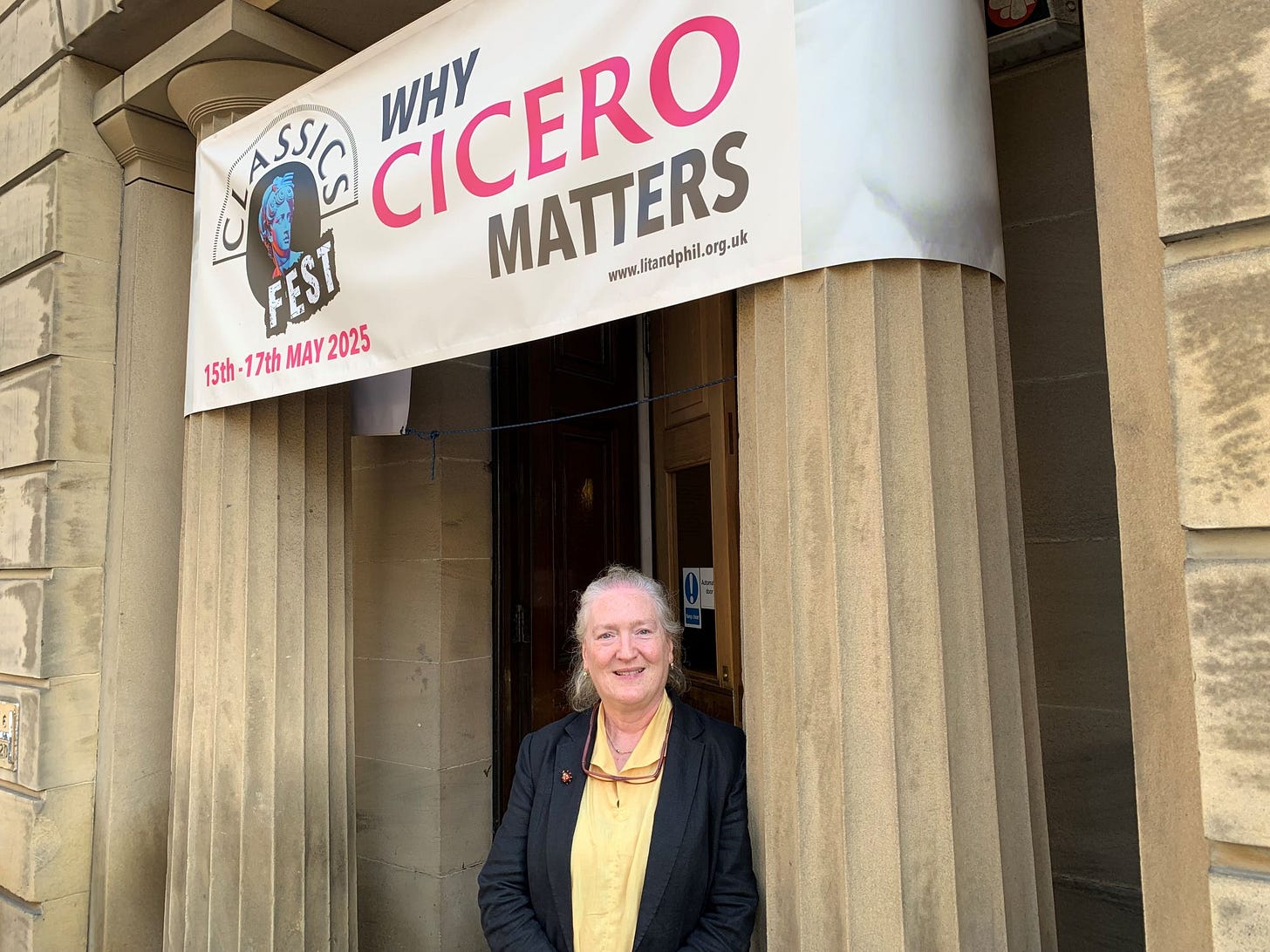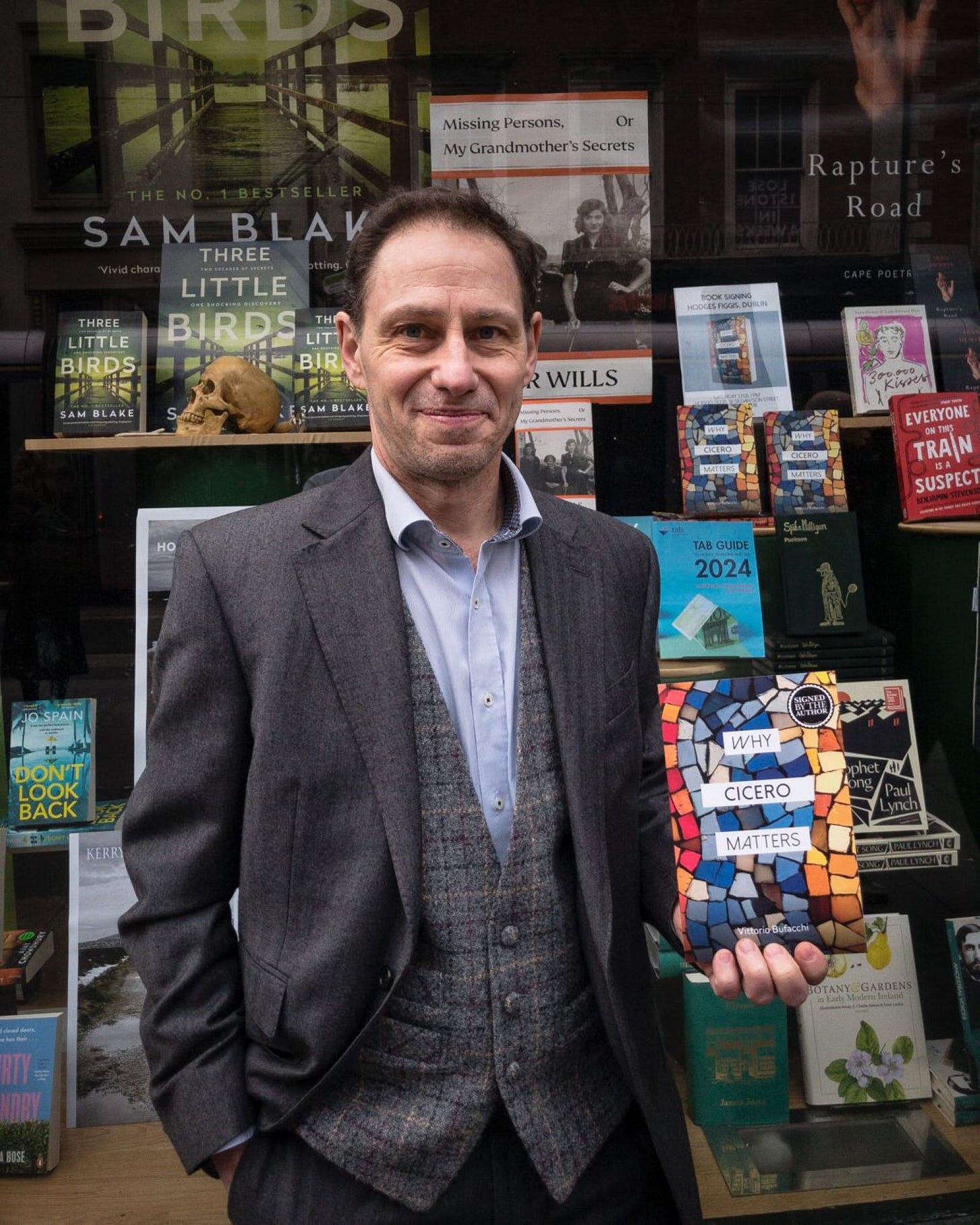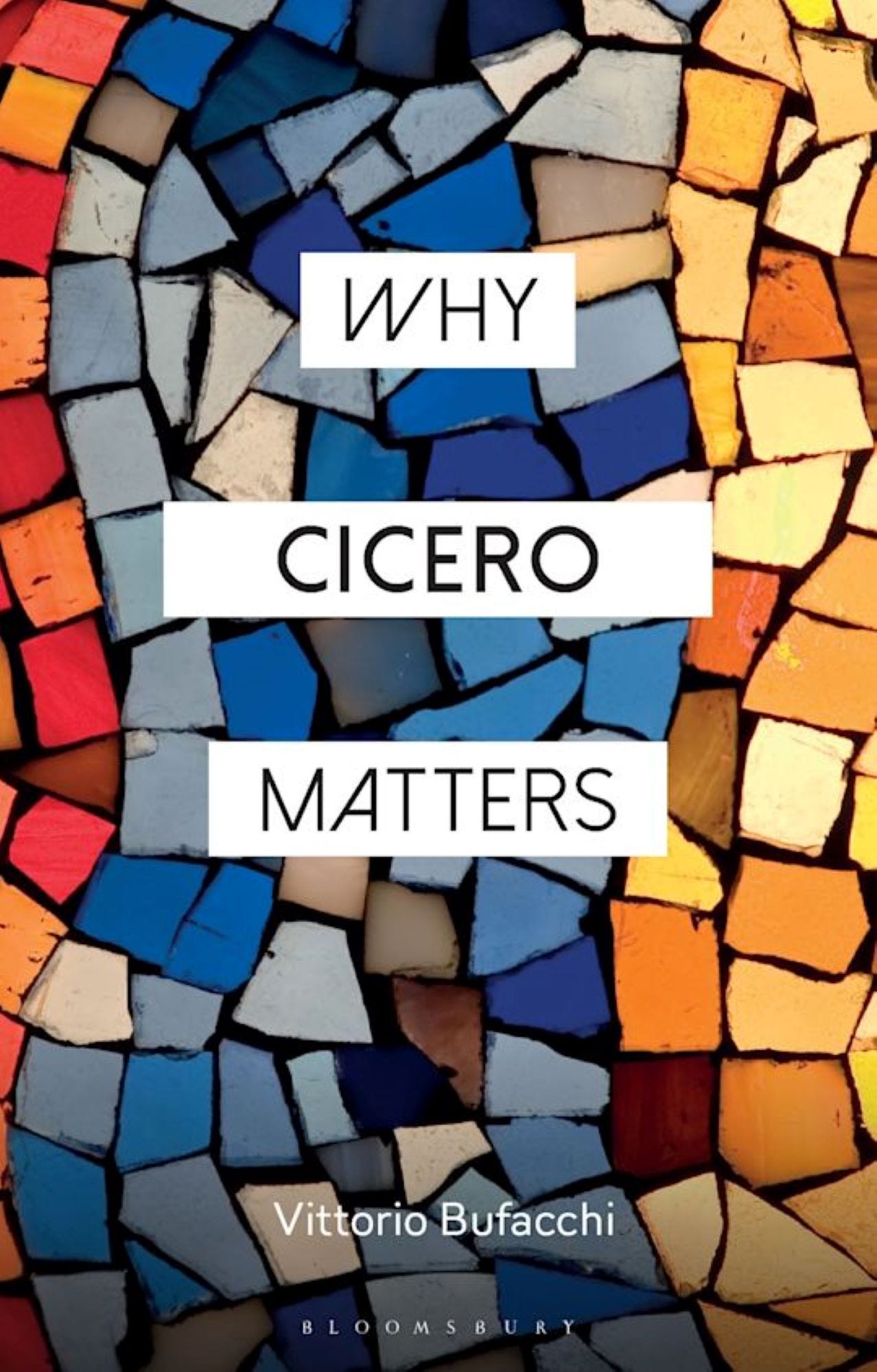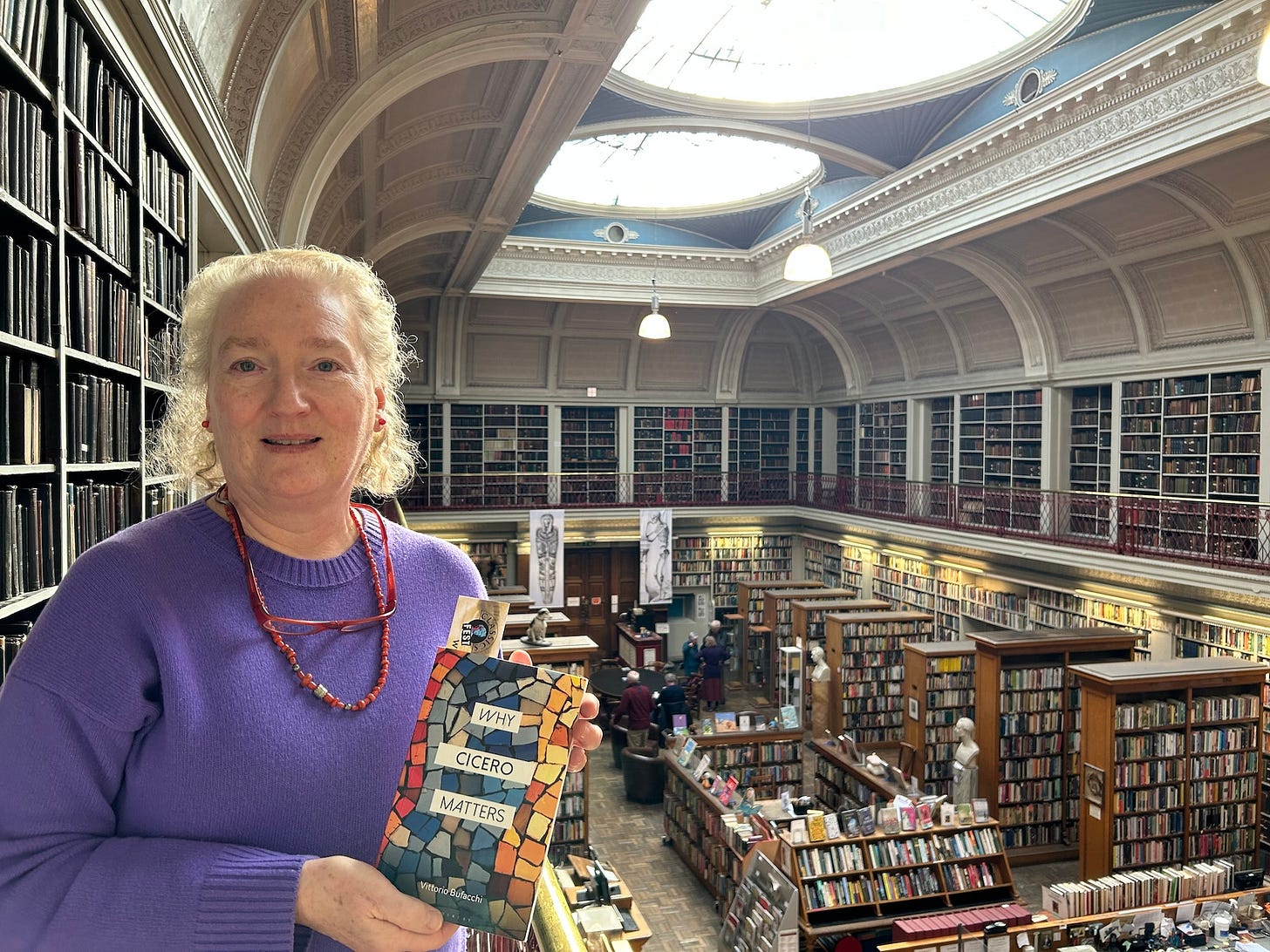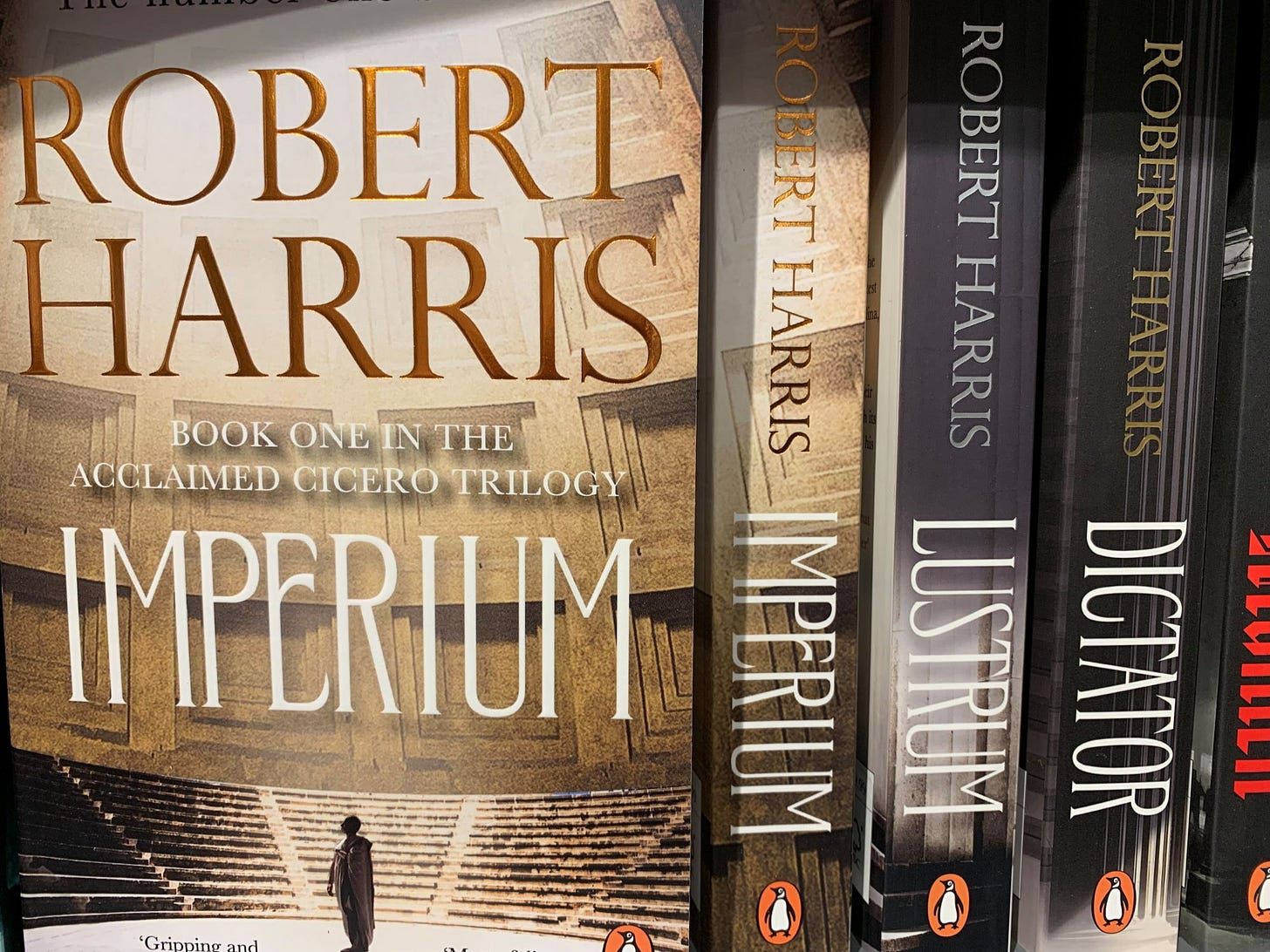Crucial lessons we should learn from Ancient Rome
ClassicsFest pulls thinker Cicero from Caesar's shadow
If you thought there weren’t lessons to be learned from ancient times, Prof Vittorio Bufacchi would almost certainly rise cheerfully to the challenge of persuading you otherwise.
He will have the chance to do so when the second ClassicsFest takes place in Newcastle since he is one of its star turns. Why Cicero Matters is the theme and also the title of his latest book.
To sway you to the value of history, he would doubtless follow the groundbreaking example of Cicero and engage in dialogue.
“It’s where we take turns. I speak and you listen; you speak and I listen. We learn from each other and together we solve a problem.
“Cicero believed that if people engaged with philosophical thinking it would make them better citizens. It takes time, of course, but dialogue is the perfect training for democratic politics.”
ClassicsFest was founded by Northumberland theatre director Cinzia Hardy, curious about a subject she missed out on at school and whose popularity upsurge is reflected in the many recent novels set in Ancient Greece and Rome.
Last year’s inaugural festival at the Lit & Phil focused on the women featured in Ovid’s Heroides (Heroines) – the likes of Ariadne and Penelope. Along with talks and discussions, their stories were retold in a contemporary setting by writers and performed by actors.
It was deemed a success, not least by the School of History, Classics and Archaeology at Newcastle University whose staff were delighted at how it blew the dust off the ancient world (not that they’d have contended there was any to blow, being steeped in it).
But how to follow it? That was the question Cinzia was asking herself even before the applause died down.
“We had a meeting and Federico Santangelo, head of the department (and professor of ancient history), set me a challenge: ‘With the state of the world, why not do something political around the Roman Republic?’
“At first I thought, where do I begin? But then I was invited to a lecture at the Dublin Cultural Institute. It was called Why Cicero Matters and was given by Vittorio Bufacchi.
“It was fascinating and I was entranced. It wasn’t just about Cicero’s life but why his thinking is so important today, especially in a post-Trump era. Trump is our Julius Caesar, our narcissist, and populist politics is on the rise.”
After the talk, Cinzia invited Prof Bufacchi to Newcastle. The Italian, long based in Cork where he lectures in philosophy at University College, said he would be delighted.
This year’s programme, therefore, is built around the issues raised in his book, published by Bloomsbury in 2023.
Prof Bufacchi, a magnetic speaker, points out that he is a philosopher rather than a classicist and it was Cicero’s thinking, on topics including friendship and old age, that appealed to him rather than the details of his life.
It was a life cut short. Marcus Tullius Cicero, statesman, orator and opponent of Julius Caesar, was murdered in 43BC, aged 63, by agents of Mark Antony, one-time ally of Caesar who had been assassinated the previous year.
By that time Caesar was ‘dictator perpetuo’ (permanent dictator) having seized power in defiance of the tradition in the Roman Republic of rule by the senate and the people.
“This is the thing,” says Prof Bufacchi on the phone from Ireland.
“Cicero lived at the end of the Roman Republic which is the closest thing you had to a democracy in ancient times.
“It wasn’t perfect because we’re talking about a slave society but it had a constitution, a rule of law and elections. Citizens had rights.
“The Roman Republic lasted for 450 years but it was undermined by populist figures and Julius Caesar, the dictator.
“I was thinking, OK, today we find ourselves facing the same threat, a sense of complacency about democracy. Our democracy is much younger than that of the Roman Republic.”
Prof Bufacchi was also spurred by the fact it’s Julius Caesar who tends to be remembered nowadays as a great historical figure, no doubt helped by Shakespeare’s play in which Cicero appears only fleetingly.
“Caesar was a martyr but you know what? He committed genocide in Gaul. No-one talks about that. He enslaved thousands of people and made a profit out of it. He was brutal. He undermined the Roman Republic and yet he’s seen as this role model.”
Cicero was highly educated and introduced Romans to the teachings of the Ancient Greeks. Populist detractors sneered at him as one of the ‘elite’ who spoke Greek.
But Cicero didn’t shy away from his name, Latin for ‘chickpea’ after a chickpea-like deformity on an ancestor’s nose. Better to defuse potential ridicule by brazening it out.
Thus fired up, Prof (then Dr) Bufacchi embarked on his literary project.
“I wanted to write a book that made Cicero relevant today, and I didn’t write it for scholars or Cicero experts,” he says.
“One thing I’ve always found intriguing about Cicero is that he was philosopher and also politician, a statesman. He held the highest position in politics in the Roman Republic.
“His philosophy was informed by his politics and his politics was driven by his philosophy. So I was interested as a philosopher and a politician (Prof Bufacchi is a member of the Irish Labour Party) in why we should read Cicero today.”
With its preface beginning ‘This book is about the greatest chickpea in the history of humanity’, Why Cicero Matters has been praised for its lightness of touch and serious message.
And so to the festival which runs from May 15-17 and features renowned scholars and figures from various fields.
Day one opens with a talk at the Lit & Phil by Dr Marta Garcia Morcillo, Newcastle University lecturer in ancient history, introducing Cicero as a key figure of the Roman Republic.
On Friday afternoon The Common Room will host a dramatisation of a famous trial, when Cicero put Roman magistrate Gaius Verres in the dock for corruption and spreading false information.
It was written by Kirsten Luckins, winner of the writing competition at last year’s festival, who worked with sixth form students.
On Friday evening actors will read scenes from Imperium, Mike Poulton’s stage adaptation of Robert Harris’s Cicero novels (Imperium, Lustrum and Dictator) before a panel discussion featuring Baroness Joyce Quin, Newcastle Central & West MP Chi Onwurah and Dr Kathryn Tempest, renowned expert on Roman history.
Prof Bufacchi, who commends the Harris trilogy as “extremely well done”, will also be present, as he will again on Saturday when he gives a talk called Cicero, Facebook and Cyber-Friendships.
Cicero, he says, believed friendship to be the cement of good citizenship.
“But on social media you have people you’ve never met as part of your cyber ‘friendship’. It devalues something that should matter a great deal.
“Cicero said life without friendship is nothing. But on social media friendship is often about what’s in it for me. That’s precisely the sort of friendship he advised us to avoid.”
At Alphabetti Theatre on May 17 (2pm) the eight shortlisted entries to this year’s competition – to write a persuasive argument in the style of Cicero – will be performed and voted on by the audience.
That same evening, at the festival finale at the Lit & Phil, the winners will discuss issues raised with others including Prof Bufacchi, Dr Garcia Morcillo and Dr Tempest.
A series of festival satellite lectures will begin with Prof Arlene Holmes-Henderson, of Durham University, talking about Classics in Schools at 6pm on May 7.
See the full ClassicsFest programme and ticket details on the Lit & Phil website.



